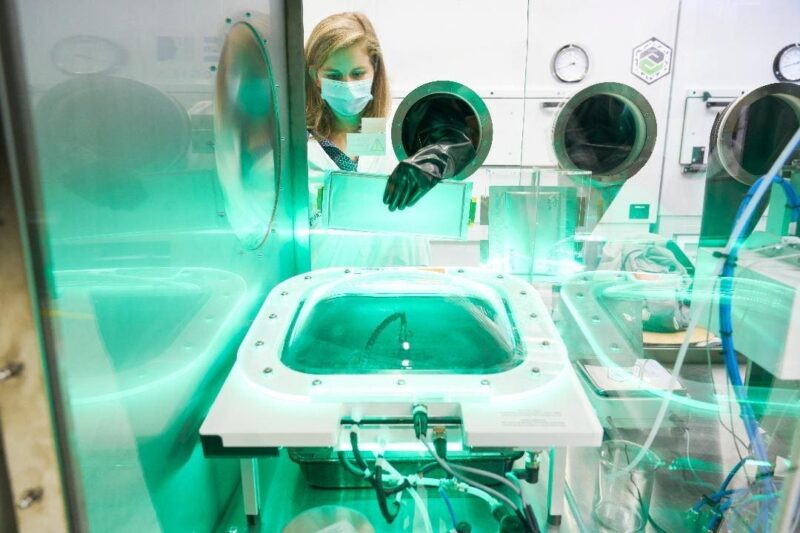A station at an Inficon station inspects a battery system.
Inficon
As vehicle electrification rises – both with gasoline-electric hybrids and fully electric powertrains – the need for battery inspections may increase.
Automakers and suppliers “have underestimated the need for battery testing,” Thomas Parker, automotive sales manager for Inficon, said at an interview last week in Detroit, where he was attending the Battery Show.
Moisture and electric power don’t mix. Hybrids combine traditional internal combustion engines with electric power. Electric vehicles rely on all electric power.
“It all goes back to what happens when something goes wrong,” the Inficon executive said.
Inficon’s inspection operations have customers across various other industries, including medical devices and electric-storage systems.
“We’re being pulled into other things,” Parker said. “I had a pacemaker company in my booth (at the Battery Show) this morning.
“All of our customers want to be sure of their measurements,” he added. “They want to be more certain of what they’re doing.”
Manufacturers who rely on electric power face potential lawsuits when electric systems malfunction.
“The big business opportunity we have is lawyer driven,” Parker said. “It all goes back to what happens when something goes wrong.”
In the U.S., the Trump administration has cooled off EV fervor that took root during the Biden administration. A $7,500 U.S. tax credits for EVs has expired.
But electrification, including EVs and hybrids, has continued to expand, albeit as a slower pace.
Last month, Volvo Cars said it add a “next-generation hybrid model” to its Ridgeville plant outside Charleston, South Carolina.
Outside the U.S., China continues to expand EV offerings. Chinese automakers have also cut back vehicle development time.
American consumers are open to buying cheaper electric vehicles from Chinese automakers, according to a semi-annual report. Dave Cantin Group said earlier this year that American consumers and dealers expect Chinese companies will make advances into the U.S. market – because such vehicles are more affordable.
How quickly that happens will depend on U.S. tariffs imposed on China by the Trump administration.








